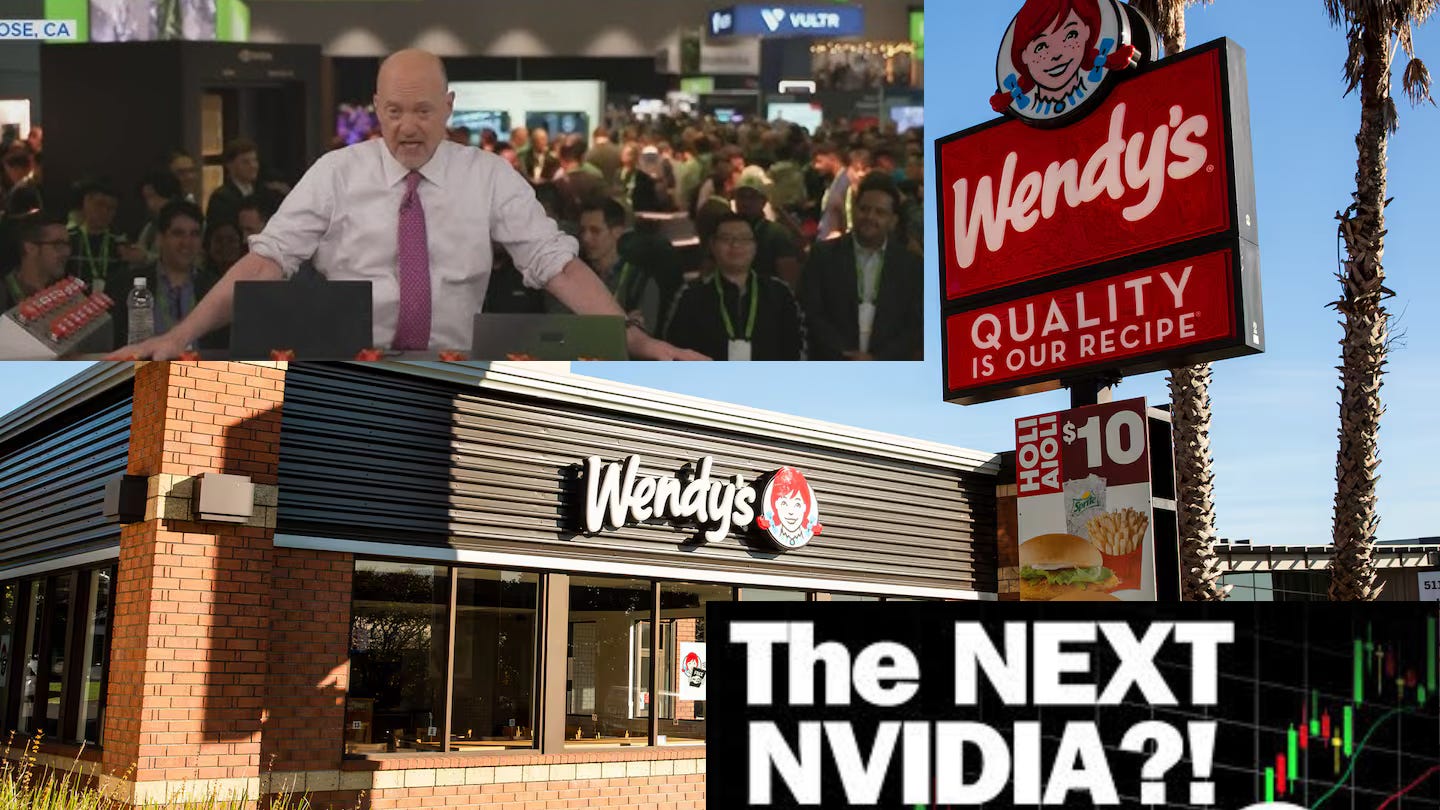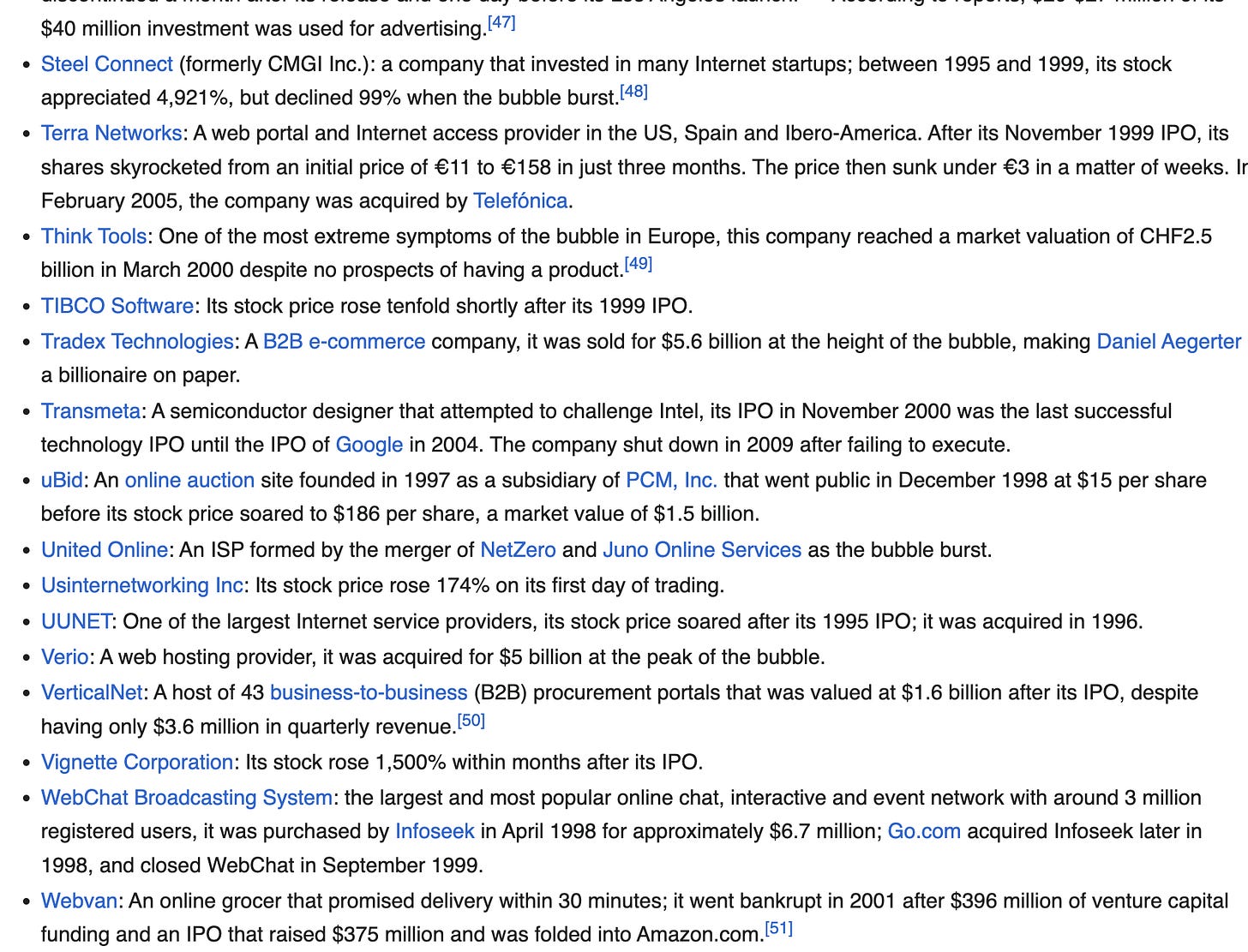Thoughts on disclosures; why American exceptionalism is not "so over"
We are so back
In brief
Medadvisor — Back at 12c…heavily down in the last few months. Noting EBOS owns ~10% of the company. Noting MDR’s has 200mn customers and is available in 37,000 pharmacies. This is a “speccy” but at this price feels like something that either needs a bid from a bigger player or some director action1…
Kering — Demna appointed, stock down 10% on the news. Overreaction. Remember Demna built Balenciaga into a billion dollar business… and he doesn’t only do streetwear.
Warehouse — My question is, with the stock price so low, at what price does Tindall get on the phone to the Normans and say — how about we do a deal?
NBIOs
It’s instructive to look at Smartpay’s recent disclosures2 to market regarding two offers to buy the company. Here’s the text from Smartpay’s market announcement, on 17 March, 20253:
Smartpay Holdings Limited (Smartpay) refers to the article in the Australian Financial Review yesterday in relation to a possible control transaction relating to Smartpay. Smartpay confirms that it has received two separate conditional, non-binding and indicative proposals (the Proposals). One of the Proposals is from Tyro Payments Limited (Tyro) and the other Proposal is from an international strategic (the Other Party). The Tyro indicative proposal is to acquire 100% of the issued ordinary shares of Smartpay by way of scheme of arrangement for a price of NZ$1.00 (approximately A$0.90) per share, comprising a majority of Tyro shares as well as cash consideration. The indicative proposal from the Other Party is to acquire 100% of the issued ordinary shares of Smartpay.
There was also a response from one of the bidders, Tyro:
Tyro Payments Limited (Tyro) (ASX:TYR) refers to media speculation over the weekend regarding a potential transaction between Tyro and Smartpay Holdings Limited (NZX:SPY / ASX:SMP) (Smartpay). Tyro confirms that it has issued a non-binding indicative offer to the Board of Smartpay, which included an offer to acquire 100% of Smartpay’s issued share capital at a price of NZ$1.00 per share, with the consideration comprising mostly Tyro shares as well as a cash component, with the proportion to be determined.
There’s a lot of pleasing transparency in this, especially in light of a listed company’s continuous disclosure obligations. We know how many proposals the company has had (2), and we know who one of them is and the price one of the parties is willing to pay. If you were a shareholder, you’d be fairly happy with how your board disclosed this information — though, as is perennially the case, the AFR got there first.
Here are some more disclosures from another company, which I’ve chosen to omit by name for now — you can have fun guessing:
7 Dec 2023
On 7 December 2023, the board of ___ received an unsolicited, non-binding, indicative proposal from a credible industry player with a view to entering discussions about a potential acquisition of all of ___’s shares at a proposed price of NZ$1.70 per share in cash via a scheme of arrangement or takeover offer (the Proposal).
Here’s the next one:
18 Dec 2023
…The Proposal was received from a party in the same industry as ___ but who is not a competitor to the business. The ___ board is promptly progressing a proper process to consider whether advancing the Proposal is in the best interests of shareholders as a whole. The board has formed an independent committee to consider, along with its external advisers, the Proposal (including the party's request for exclusivity) and to consider any alternative proposals which may emerge.
You may well think that this is a guessing game here — like a game of “guess who?” — we first know they’re a “credible industry player” and then we know they’re “in the same industry”. So many clues!
Anyway — here’s the last disclosure:
19 June 2024
The parties were unable to reach a suitable resolution to the potential complexities encountered during due diligence (as announced on 13 May 2024). Given the strict confidentiality restrictions which remain in place, ___ will not be providing further comment.
I offer this with no opinion — just up as some facts taken from two listed NZX companies. Both have fulfilled their continuous disclosure obligations as per NZX listing rules. But look for yourself — Smartpay has been quite transparent, open, and down-to-earth with the process. The other company, on the other hand, won’t even name the bidder after the process ended. It might be worth considering which approach best serves shareholders. Did you guess the other company? It’s Rakon.
“The end of American exceptionalism”
I always have to laugh when you see the people on CNBC and Twitter dot com pivoting from “American exceptionalism” to “America is crashing; buy China”. It must take quite a bit of mental gymnastics to pivot in the space of a few days, conveniently when markets in the US are down, especially the Mag 7.
It wasn’t so long ago that Nvidia was touted as the next big thing and fund managers looked stupid for not owning the Mag 7 and shadow indexing the NASDAQ. Now it appears everyone is a genius and has correctly called China right. It is a bit like how all the COVID experts suddenly became geopolitical experts when the Ukraine war broke out. It’s truly amazing the depth of people’s knowledge, isn’t it?
What many people seem to be missing is that very little has changed with the broader basket of companies in the American economy. I am not talking about the Mag 7. I am talking about a grab-bag of other companies that have fallen — Visa stock (down 6% or so in a month, Warner Music Group stock (down about 9% in a month), Spotify stock (down about 10% in a month). The fundamentals have not really changed with any of these stocks — Visa will continue to “clip the ticket” on every transaction they process (tariffs, what tariffs?!), Warner Music Group will continue to take a royalty on every song played from their vast catalogue, and Spotify will continue to dominate music streaming with 250 million + subscribers. You will note that none of these companies are particularly affected by tariffs — they’re either an intermediary, an online app, or deal in ethereal things (WMG). So what gives?
Critics of the US market will say, well, we’re due for a correction and those stocks were overvalued. And maybe that’s true, but the larger reason is because so many investors have become devoted index lovers — and the index is dumb. The Mag 7 accounts for ~43% of the NASDAQ’s performance — i.e. the NASDAQ is really a Mag 7 index, with some bonus companies in it. So when those highly valued stocks get sold off, indexes start selling off in turn, and you end up with a trickle down effect that causes everything to go down.
I have long argued that indexes are mostly irrational when their concentration of certain stocks gets so large. The outsized gains of Mag 7 stocks over the last few years has magnified the return on the NASDAQ, yet it also goes the other way. There’s not a lot of intelligent investing that goes into indexes — they simply are big dumb machines that reflect sentiment. If, say, the Norwegian sovereign wealth fund decided Wendy’s was the most valuable company in the world (presumably by their in-depth internal quant models), then they and others could bid up the price until Wendy’s was now a $3 trillion dollar company and perhaps the largest on the index. Suddenly so much of the index is concerned with the performance of Wendy’s, and those who passive invest into said index are obligated to have a higher weighting of their portfolio towards Wendy’s. It becomes a Wendy’s world! I don’t know — maybe Wendy’s renames themselves Wendy’sAI and everyone goes, “oh, yeah, that’s cool” and suddenly their burgers discover quantum computing via Good Quality Beef or something and then you have Cramer calling it the next Nvidia, etc!
That is a silly point, obviously4 , of course Wendy’s is not a trillion dollar company, though everyone seems to think a car company is worth a lot more than it probably should be. But my real point is when indexes sell off because of their higher-weighted stocks, the baby gets thrown out with the bathwater. There is nothing wrong with a company like Spotify, Mastercard, MSCI, Visa, Adobe, IDEXX, Warner Music Group, and so on. The truth is America still has the vast majority of the world’s great companies. Moody’s and S&P largely control credit ratings, for better or worse; Visa and Mastercard dominate the world’s payment flows, Meta and Google (in that now-dreaded Mag 7!) still have an overwhelming share of global online advertising. You get the point…
Here’s Buffett writing in 2008:
Over the long term, the stock market news will be good. In the 20th Century, the United States endured two world wars and other traumatic and expensive military conflicts; the Depression; a dozen or so recessions and financial panics; oil shocks; a flu epidemic; and the resignation of a disgraced president. Yet the Dow rose from 66 to 11,497.
You might think it would have been impossible for an investor to lose money during a century marked by such an extraordinary gain. But some investors did. The hapless ones bought stocks only when they felt comfort in doing so and then proceeded to sell when the headlines made them queasy.
The CNBC crowd and the Twitter crowd, by and large, remind me of those hapless ones who buy stocks when they feel comfort and sell when headlines make them queasy. I am not suggesting many US stocks look cheap, but I am saying that my gaze is starting to fall over that way again, now that many others are starting to shy away. I’m a contrarian.
I was sitting with a well-known ex-HK fund manager some time ago, eating dinner at his place over hotpot. He said, I understand why you like the French family-owned companies, but the problem is the labour laws, frankly — it’s hard to do business in France5. I thought on that for a while — there are obvious places, like China, but the US still remains a place where people have an relentlessly entrepreneurial spirit. Brown-Forman, a company I love and do think is good value, survived prohibition! That takes gumption.
As I’ve said before, if you like steak at $20/kg, you’re going to love it at $15/kg. The song remains the same.
Not investment advice. Do your own research.
https://www.nzx.com/companies/SPY/announcements?year=2025
Of course, there’s obvious exceptions to this — LVMH, Hermes. Robertet, L’Oreal, Remy…





